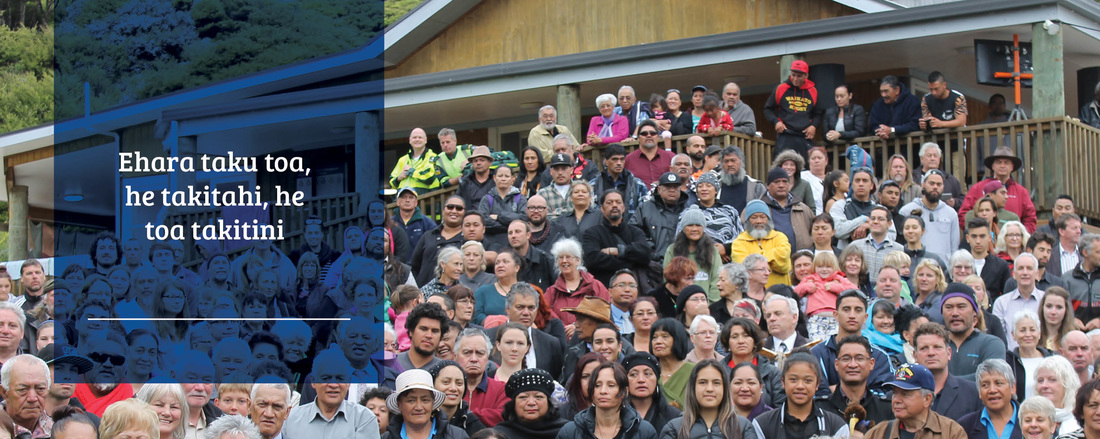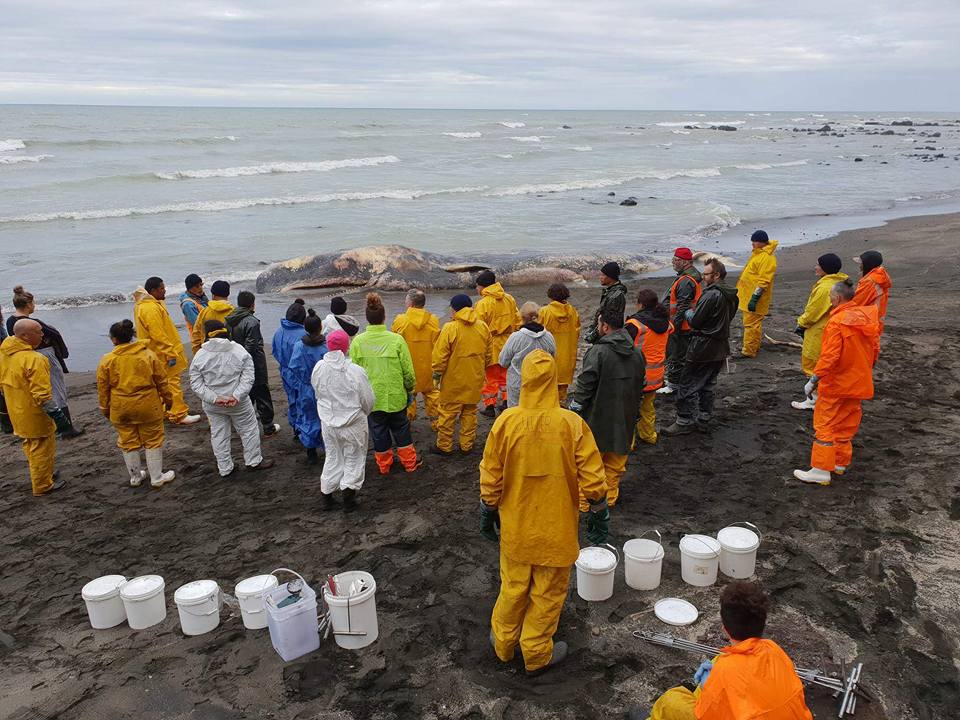
12 Parāoa Whales (Sperm Whales) recently stranded on the South Taranaki coast of Kaupokonui, on a scale not seen on their coast in recent memory.
Parāoa are a tāonga (treasure) to Māori. Not because of their valuable teeth, bones and the highly valuable ambergris, but because these whales are viewed as our tūpuna (ancestors).
Māori have a long association with whales. Whales often feature in kōrero and stories and considered kaitiaki or guardians on our ancestors’ waka journeys to Aotearoa.
With the stranding being spread over five kilometres of this west coast, the work ahead of the local hapū of this area, Ngāti Tū and Ngāti Haaua was always going to be challenge.
A challenge firstly because of the coast line. The West coast even on a good day can be a rough and rugged landscape. However with the onset of winter, high winds and storms coming through the work for those involved was difficult.
A challenge also because the mātauranga (knowledge) of this type of work was not something the local hāpu had. Whale stranding’s on this coast are a rare occurrence, no one from the local hāpu knew how to deal with them properly.
Ngātiwai tohunga (expert) Hori Parata is known nationally for his expertise in whale recovery. He has been involved in this type of mahi for decades, and is a leader in developing whale recovery protocols. The knowledge he has is something that he has grown up around and has been handed down to him from his uncles.
So when the local hāpu saw what faced them, they called Hori for advice on what to do. Hori advised them that he would be there in 24 hours, and that is what he did.
Hori packed his truck with all the equipment that he needed, gathered a team of kaitiaki that included David Milner, Buch Cullen, Tui Shortland, Te Kaurinui Parata, Poai Niha, Sylvia Wano and made the long Journey from Tai Tokerau to South Coast of Taranaki.
Ngāti Tu hapū member Bonita Bigham of Manaia, said “Our hapū is forever indebted to Ngātiwai for sharing your taonga – Matua Hori and his amazing team with us here in Ngāti Tū, kei Taranaki Ki Te Tonga.”
“My whānau have been able to rediscover the lost cultural knowledge with the tautoko and awhi (support) of matua Hori and his rōpu from Ngātiwai.”
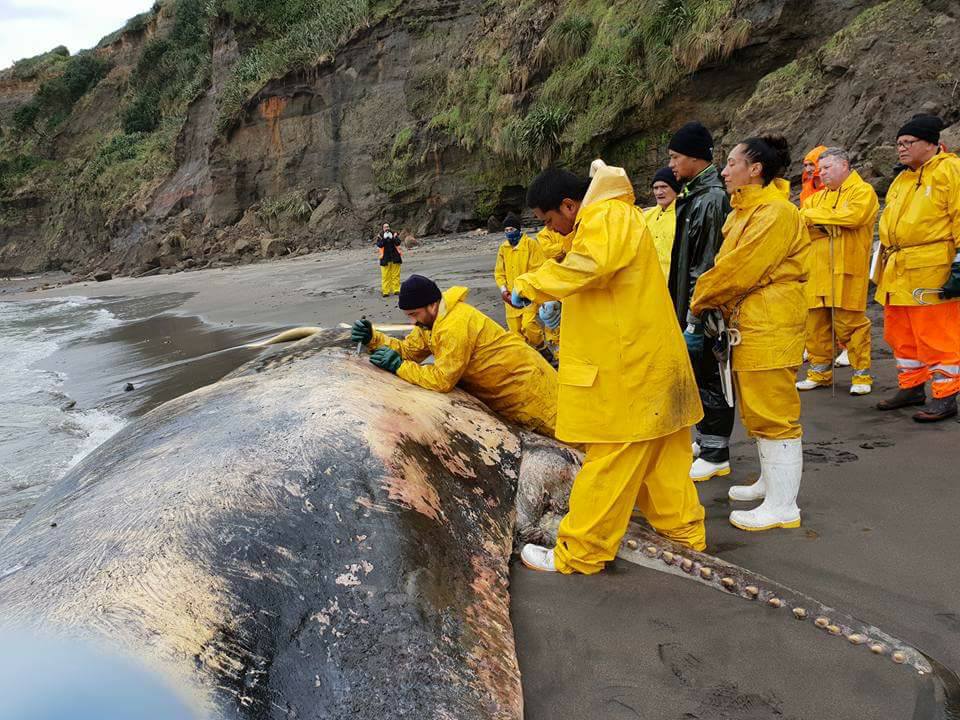
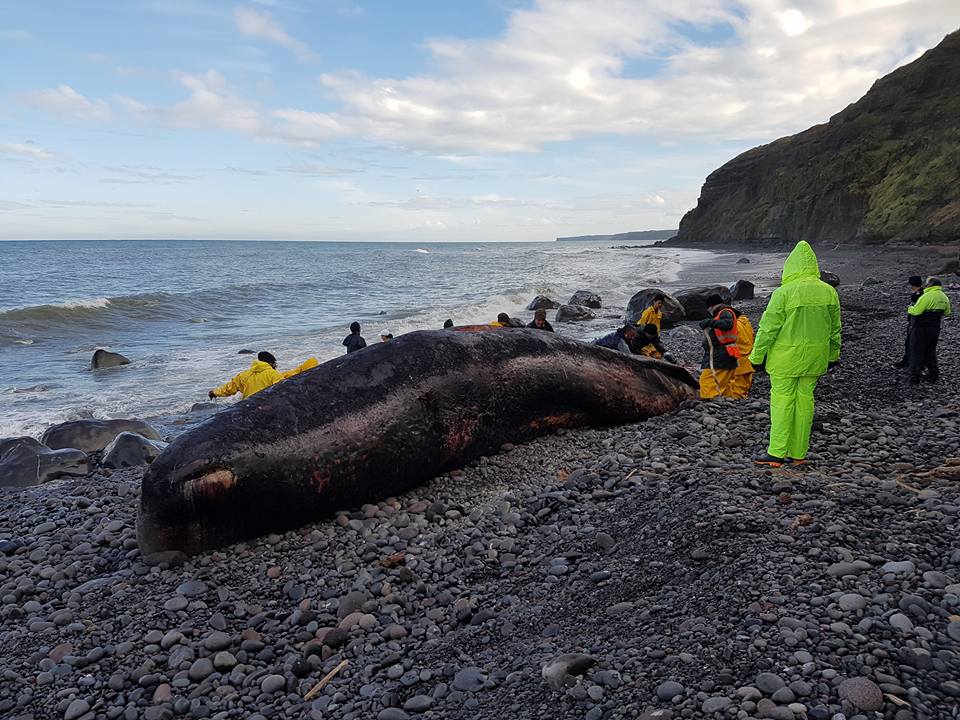
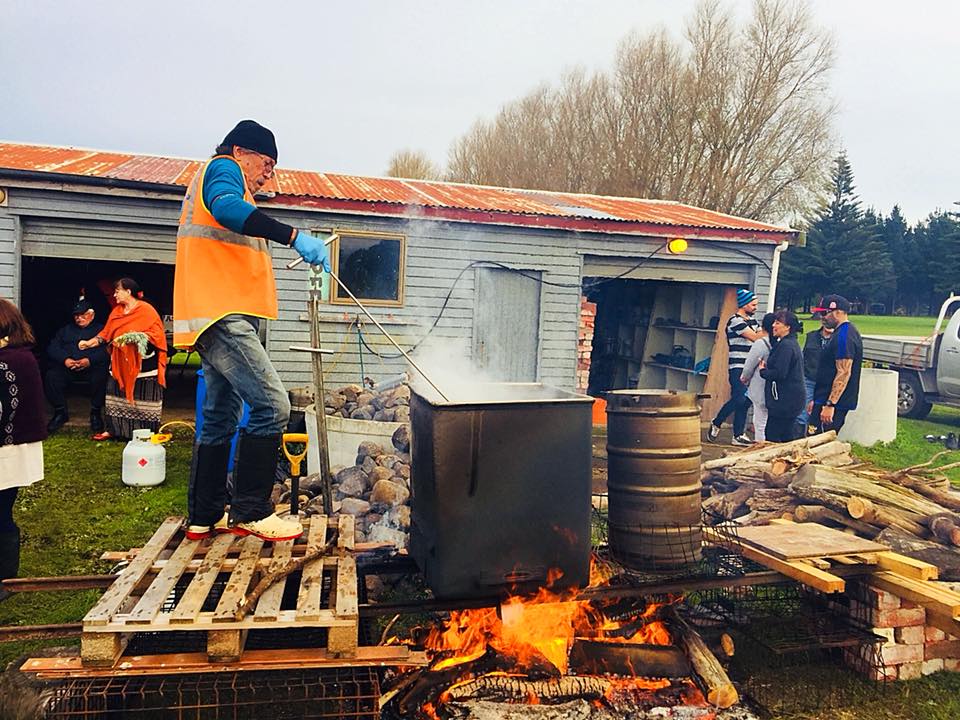
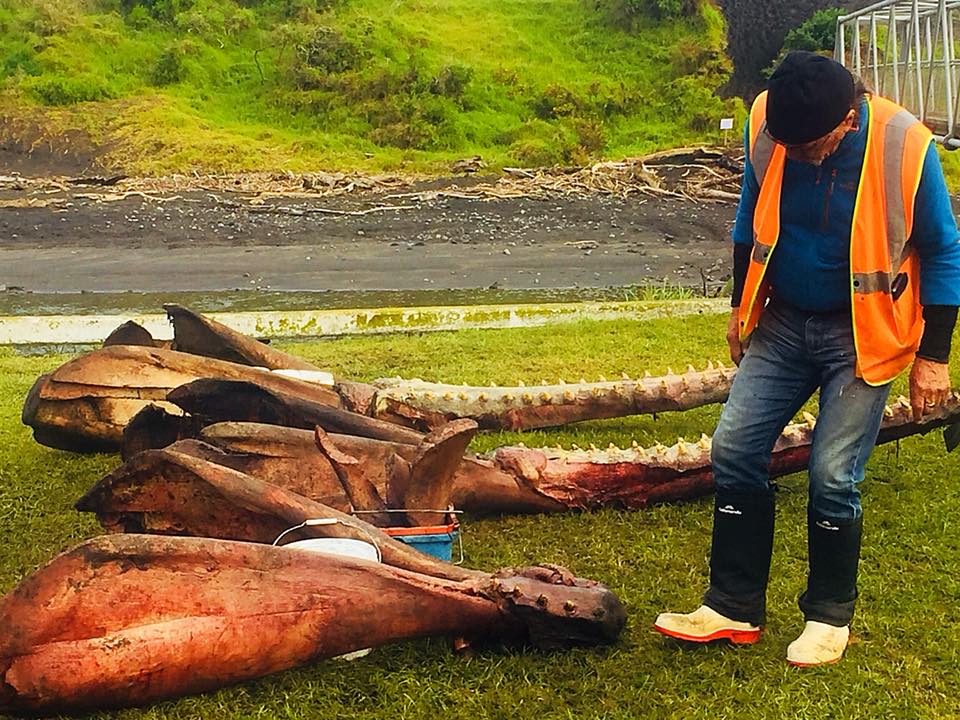
“Matua Hori Parata is known nationally as an expert in this mahi and we are grateful beyond words to have someone of this calibre here, especially in these tough conditions.”
Another challenge that Hori and the local hapū faced was from the Department of Conservation (DOC). When the ambergris and Jaws were being extracted from the Whales, DOC asked the local marae and hapū if this is a commercial operation and if they had permits.
This is because ambergris is a highly valuable international commodity used in cosmetics and perfumes, and highly valuable in part due to its rarity and the uncertainty of supply.
Hori Parata quickly shut down this conversation with DOC by explaining that “the Maori name for ambergris is “Mimiha”, and was also known sometimes as a Māori chewing gum.”
Hori advised DOC that “We as Maori don’t classify this as a commercial operation. It (ambergris) has a Maori name – Mimiha, and we consider it rongoa Māori (a traditional Māori medicine). What the local hapū and marae choose to do with it, that is their business – end of story.”
Although the work was hard and challenging, Hori said it was a great feeling down there.
“The Wairua was very strong.”
“At times the Maunga would show itself from behind the clouds at just at the right time, which was a sign to us that our tūpuna were keeping an eye on us.”
Ngātiwai have strong ties to this area, with Matua Hori explaining that our eponymous ancestor Manaia came ashore and spent time there. While down there Hori explained that the local hapū would often refer to our connections in their kōrero. Place names such as Mokau, Oakura, Manaia, Punaruku and Nga Matapouri affirm our connections to this area.
After eleven days away and the majority of the mahi completed, Hori and his team made their way home. Although tired and looking forward to having a good shower and a sleep back in their own beds, they were all buzzing.
Hori says “I am really proud of our group that travelled down. They all performed and upheld the Mana of Ngātiwai. The whole thing just ran really well, we established safe environments in the working areas, all the teams worked well together which DOC, the local hapū and marae all acknowledged and thanked us for our efforts.”
“I am pleased that we have been able to share our knowledge and leave the local hapū in a position to be able to deal with the type of mahi when this situation arises again, but also to be able to share and hand down this knowledge to their future generations.”


